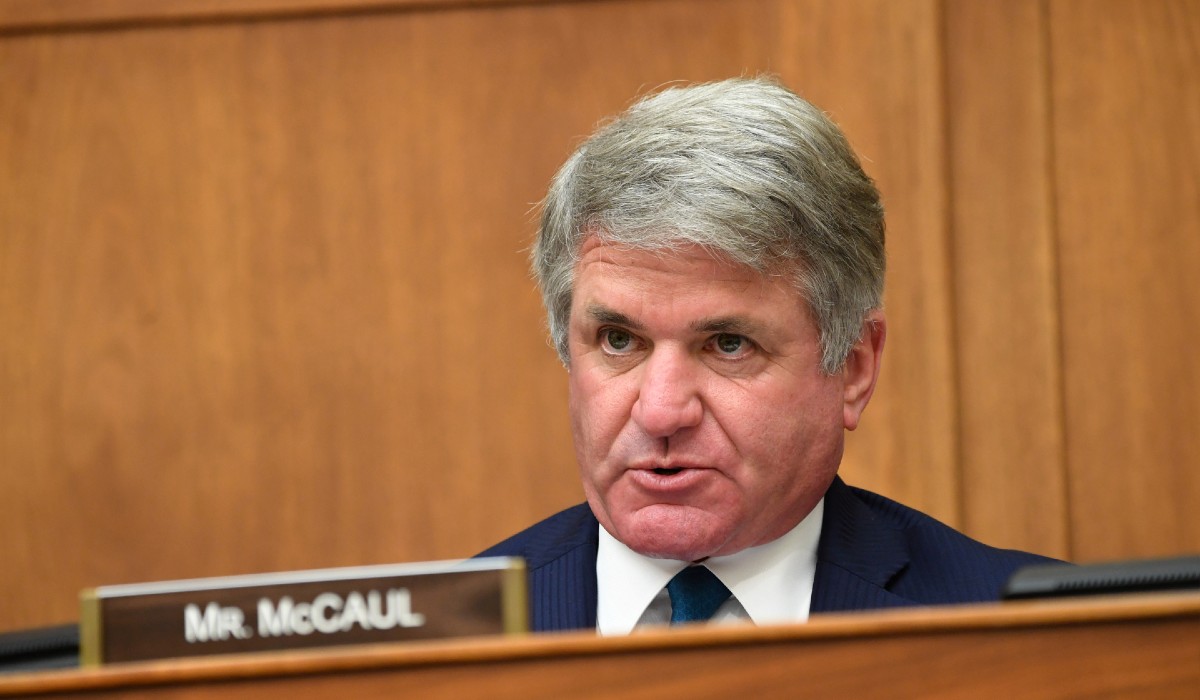US House Foreign Affairs Committee Chairman Michael McCaul said Tuesday that information in a State Department’s review on the Afghanistan withdrawal was “directly at odds with the White House’s narratives.”
In a letter addressed to Secretary of State Antony Blinken, McCaul says the After-Action Review of the Afghanistan withdrawal was sent to the committee by State on April 6, only after the department was threatened with a subpoena. He also said the 87-page document provided “considerable new insight” into the botched pull-out.
“Information within the After-Action Review directly contradicts the White House’s recent written and oral public statements. This includes specifically contradicting National Security Council Coordinator for Strategic Communications John Kirby’s April 6, 2023 statements on the emergency evacuation from Afghanistan that, ‘for all this talk of chaos, I just didn’t see it’ and ‘…I just won’t buy the whole argument of chaos’.”
McCaul pointed out that the Biden administration’s summary of findings of their after-action review blamed the failures of the withdrawal “almost entirely on the Trump administration”. This, despite the decision to proceed with an unconditional withdrawal on April 14, 2021, being made by Biden and control of the withdrawal timeline, the planning and execution thereof, being the sole responsibility of the current administration.
McCaul said the committee continues to examine the After-Action Review, and listed “notable takeaways”. He said the decision to hand over Bagram Air Base to the Afghan government had left forces only one avenue for a possible noncombatant evacuation operation, which was through the Hamid Karzai International Airport in Kabul.
He noted the review directly acknowledges the Biden Administration’s role in the withdrawal’s failures but said the revew team found that during both Biden and Trump administrations “there was insufficient senior-level consideration of worst case scenarios”.
The After-Action Review found that “it was unclear who in the department had the lead” in the evacuation process and had failed to name a principal to oversee its crisis response, which would have improved coordination across different lines.
The State Department’s review also found that it had failed to establish a broader task force as the situation in Afghanistan deteriorated in late July and early August 2021. McCaul’s letter stated “the complicated Department task force structure…proved confusing to many participants, and knowledge management and communication among and across various lines of effort was problematic.”
The review also found that constantly changing policy guidance and public messaging from Washington regarding eligibility for relocation of local allies added to the confusion.
The State Department’s review team recommended overall crisis preparedness be strengthened. The letter to Blinken states that while the Trump administration recognized this problem – and attempted to solve it by creating a new Contingency and Crisis Response Bureau under Secretary of State Mike Pompeo, Deputy Secretary for Management and Resources Brian McKeon dissolved the bureau shortly after taking office in 2021.
McCaul says in his letter to Blinken that the department has cited the review’s classified nature as the base for not releasing the document. However, the majority of its contents are marked as either “Sensitive but Unclassified” (SBU) or “Unclassified.”
“Of the portions of the document marked “Secret”, it is often unclear as to why they were classified as such, and whether they even genuinely merit classification or are merely politically sensitive or embarrassing,” McCaul stated.
As such, he called on the department to “publicly release the After-Action Review’s already unclassified executive summary, findings, and recommendations sections immediately, and an
unclassified version of the complete document within 60 days.”
The After-Action Review also references a set of documents called “the Afghanistan AAR files,” described as “an electronic and paper collection of all the materials the review team consulted and cited to prepare its report.”
McCaul in turn said the documents cited throughout the After-Action Review are material documentary evidence of events of the withdrawal and are essential to the committee’s investigation of the Afghanistan withdrawal.
“Please produce the Afghanistan AAR files to the Committee in complete and unredacted form no later than May 5, 2023,” McCaul said adding that a wholly unredacted version of the After-Action Review must also be produced no later than May 5.
He also pointed out that the document was produced in contravention of standard procedures and went instead to the Office of House Security, “instead of to the Committee’s own classified space.”
He told Blinken in the letter that the Biden administration’s “pattern of obfuscation and obstruction towards oversight of the withdrawal is unacceptable and will not be tolerated. The Committee expects a timely and complete response to its requests and looks forward to your prompt reply.”




